Why AI Is Changing the Game for Agent Productivity
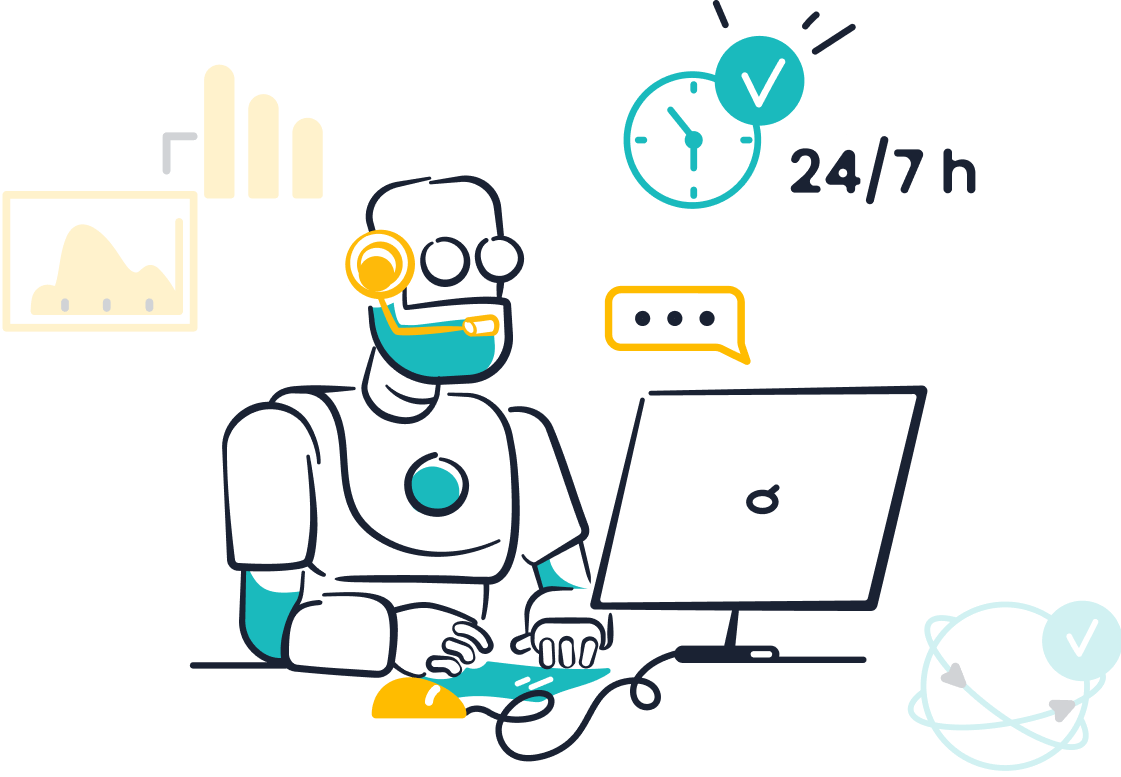
AI is driving a transformation in agent productivity by automating tasks and enabling smarter decisions for businesses. In customer service, retail, and e-commerce, the impact stands out—AI agents now handle up to 80% of customer service interactions, and companies see a 30-35% reduction in operational costs. Sobot AI solutions, like the Sobot call center platform, help teams boost productivity and deliver consistent support. This digital transformation sets the stage for business transformation across industries.
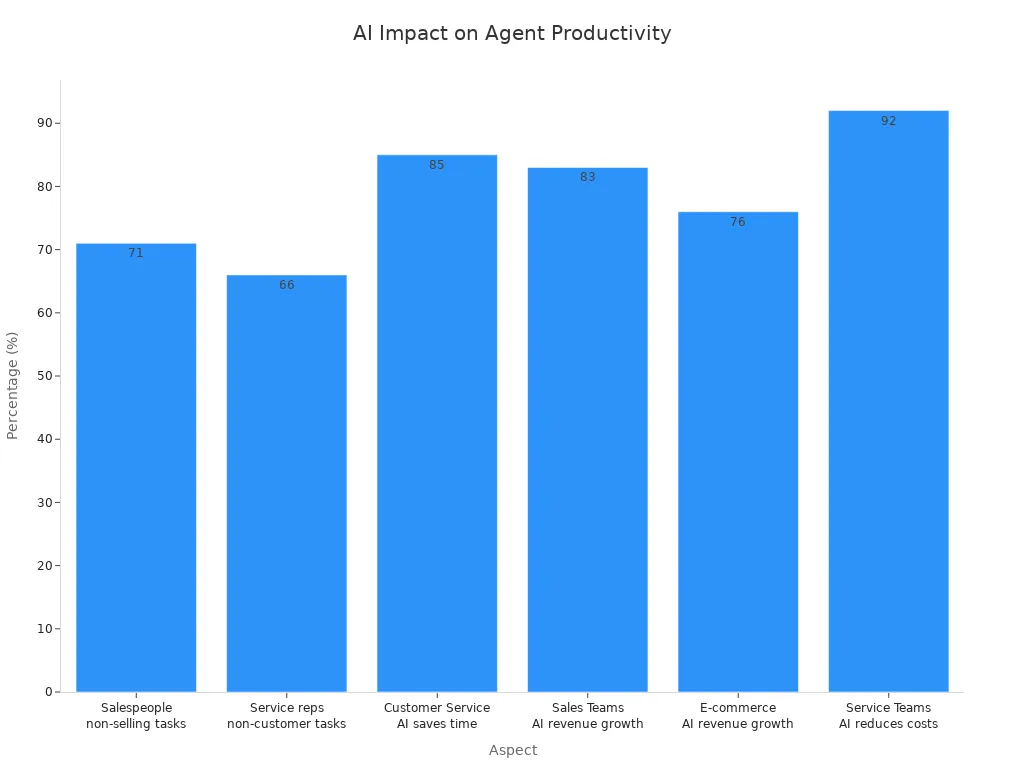
AI and Agent Productivity
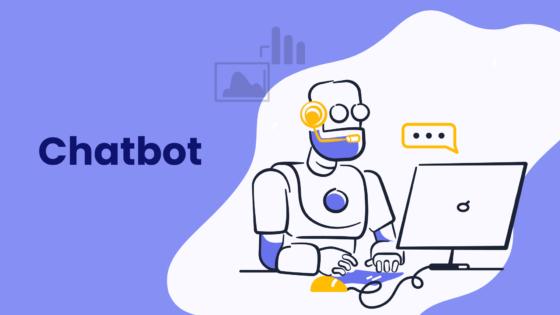
AI Agents Explained
AI agents have become essential in customer-facing industries. These agents use advanced technology to automate tasks, support decision-making, and improve agent productivity. Unlike traditional software, AI agents learn from their environment and adapt to new situations. They do not just follow fixed rules. Instead, they use data and pattern recognition to make decisions and solve problems.
AI agents can handle customer inquiries, manage tickets, and route requests to the right person. They enable self-service options and personalize support for each customer. These agents detect customer sentiment and help agents respond in real time. They also automate email replies and connect with CRM or helpdesk systems to streamline workflows.
AI agents support multilingual communication, making it easier for businesses to serve customers worldwide. They can make decisions on their own, without human help, and transfer complex issues smoothly to human agents when needed. Their integration with existing business technology stacks boosts operational efficiency.
| AI Agent Type | Common Use Cases in Customer Service and Sales |
|---|---|
| Conversational | Handling customer inquiries, FAQs, and support via natural language interfaces |
| Utility-based | Lead scoring, prioritization, and sales-related decision making |
| Learning | Analyzing sales interactions, improving performance over time |
| Hybrid | Managing complex workflows like triaging and responding to customer requests |
These types of AI agents are widely used to automate tasks, improve efficiency, and enhance customer experience. For example, conversational agents answer questions 24/7, while utility-based agents help prioritize sales leads. Learning agents get better over time by analyzing past interactions, and hybrid agents combine several behaviors to manage complex workflows.
AI agents differ from traditional software tools in many ways:
- AI agents improve over time by learning from their environment.
- They automate tasks using data predictions, not just fixed instructions.
- AI agents analyze large datasets quickly and provide insights for decision-making.
- Traditional software is rigid and only follows preset rules.
| Aspect | AI Agents | Traditional Software |
|---|---|---|
| Functionality | Autonomous, goal-driven programs with memory, planning, and tool interfaces | Deterministic, rule-based, static workflows |
| Adaptability | Learn from outcomes, adjust strategies, handle new inputs | Fixed workflows; changes need human intervention |
| Interaction | Conversational interfaces, memory of past interactions, multi-agent collaboration | Fixed user interfaces, no memory of past sessions |
| Decision Making | Use feedback to improve over time, explain autonomous decisions | Logic is transparent code, no autonomous learning |
| Performance & Resource | Blend high-performance code with AI reasoning for speed and adaptive intelligence | Optimized for fixed tasks, no adaptive intelligence |
AI agents maintain memory and persistent state, so they remember past actions and adjust future steps. They operate well under uncertainty, use probabilistic models, and integrate with external tools for complex problem-solving. This shift from rule-based programming to data-driven learning marks a major change in how technology supports agent productivity.
Core Capabilities
AI agents offer a wide range of capabilities that drive agent productivity and efficiency. These tools help agents focus on important tasks and reduce manual work.
- Smart Routing and Agent Matching: AI ensures customer queries reach the right agent first. This reduces transfers and improves resolution rates.
- Live Interaction Assistance: AI chatbots analyze customer sentiment and suggest next steps during live conversations. Agents get instant support and guidance.
- Instant, Intelligent Knowledge Access: Agents ask questions in natural language and receive accurate answers quickly. This saves time and boosts confidence.
- Analytics for Ongoing Improvement: AI evaluates interactions to find trends and bottlenecks. This helps refine scripts and optimize training.
- Automated Post-Call Processing: AI summarizes conversations, enters codes, tags calls, and updates CRM records. This reduces wrap-up time and lets agents move to the next task faster.
- Real-Time Agent Assist: AI tools guide agents during live interactions by suggesting the best actions and responses.
- Contextual Guidance: AI provides personalized prompts based on recent customer interactions, so agents always have the full context.
- Predictive Routing and Skill-Based Matching: AI routes interactions to the best-suited agents based on skills, performance, and capacity.
- AI-Powered Coaching Recommendations: Real-time analysis identifies performance gaps and suggests coaching for targeted training.
- Proactive Workflow Automation: AI integrates workflows, automates routine tasks, and keeps agents focused on customers.
- Speech and Text Analytics: AI analyzes customer interactions to identify trends, provide real-time suggestions, and summarize conversations.
AI-driven automation also helps agents by:
- Automating cross-platform business processes, such as onboarding workflows.
- Managing resources in real time, like ERP and inventory systems.
- Handling multi-step customer requests, including issue escalation and personalized communication.
- Using predictive analytics and continuous learning to speed up decision-making and improve accuracy.
These features reduce manual work, speed up response times, and enable agents to handle both routine and complex tasks efficiently. Companies using AI-powered decision-making see a 10-15% reduction in operational costs and a 5-10% increase in productivity. AI systems process real-time data, adapt to changing conditions, and automate routine tasks, unlike traditional methods that rely on historical data and human intuition. By 2025, experts predict that 50% of sales interactions will be supported by AI-powered virtual assistants (Gartner).
AI agents break down data silos and eliminate repetitive work. Tools like AI Agent Orchestrator and AI Agent Studio simplify the management of AI agents, making it easier for organizations to build, onboard, and monitor these tools.
AI agents also support predictive AI agents, which use data to forecast customer needs and proactively address issues before they arise. This level of innovation helps businesses stay ahead of customer expectations and deliver better service.
Sobot Chatbot Overview
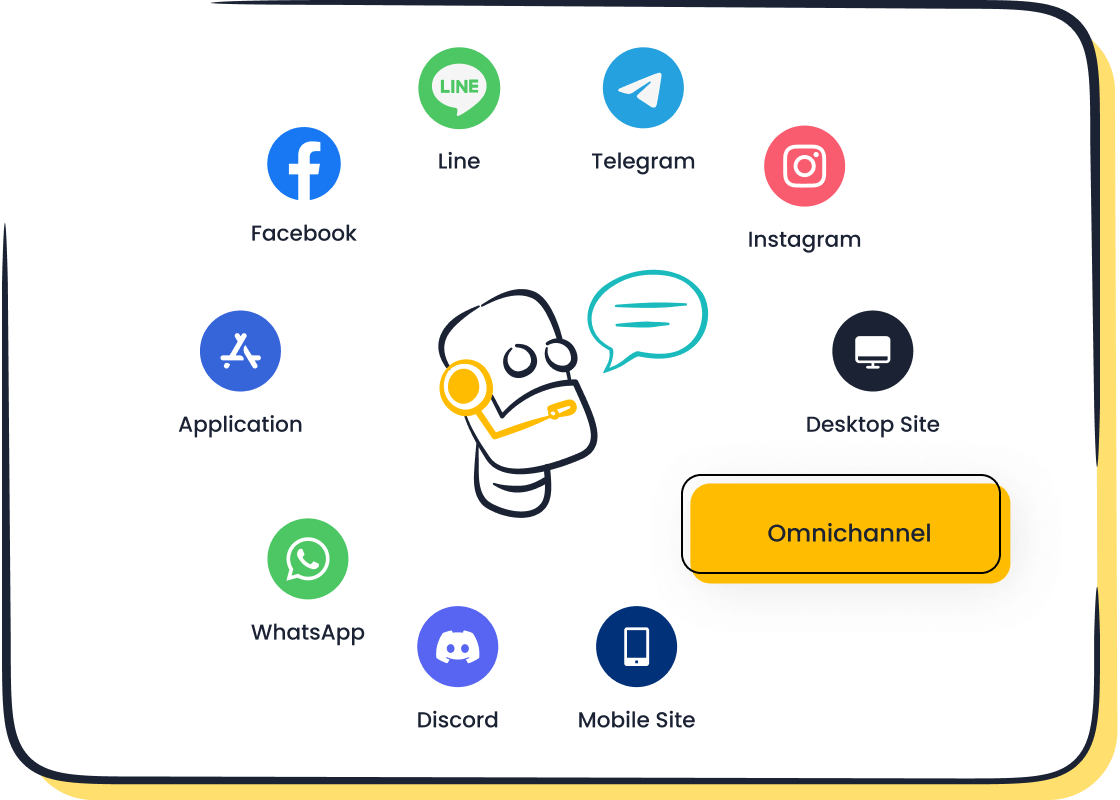
Sobot Chatbot stands out as a leading solution for businesses seeking to boost agent productivity through AI-driven automation. The platform uses generative artificial intelligence and generative AI to deliver accurate, context-aware responses across multiple channels. Sobot’s Five-AI system covers all customer touchpoints, including websites, mobile apps, social media, email, phone calls, SMS, and AI voicebots. This omnichannel approach ensures a seamless and unified customer experience.
Sobot Chatbot offers scenario-based AI tailored for e-commerce and retail. It supports the entire customer journey, from pre-sales inquiries to personalized recommendations and post-sales support. The platform’s multi-faceted AI includes:
- AI Agent for customers
- AI Copilot assisting human agents
- AI Insight providing analytics dashboards for administrators
Sobot Chatbot uses advanced large language models (LLMs) and small language models (SLMs) to deliver industry-specific responses. The platform ensures global data privacy and compliance, supported by regional data centers and international security certifications.
Sobot Chatbot provides a more comprehensive AI ecosystem than typical AI agents or copilots. It integrates customer access channels, application scenarios, targeted audiences, core technologies, and security assurances.
Organizations have adopted Sobot Chatbot to address productivity challenges by automating routine tasks in HR, IT helpdesk, internal communication, and training. For example, HR teams using chatbots handle 60% of candidate questions outside regular hours and automate 74% of inquiries, reducing time spent on common HR tasks by up to 75%. In IT support, chatbots manage repetitive requests like password resets and software installations, handling multiple requests at once and reducing resolution times.
Sobot Chatbot also supports personalized employee training by adapting to individual learning needs and providing 24/7 interactive support. This improves engagement and retention. Internal communication improves as chatbots provide instant, consistent access to company policies and contacts, reducing time spent searching for information.
Sobot’s mature models and knowledge graphs, combined with continuous integration of the latest generative artificial intelligence technologies, ensure that the platform remains at the forefront of innovation. The platform’s strong security compliance and broad channel coverage make it a trusted choice for over 10,000 brands worldwide.
Tip: Sobot Chatbot’s point-and-click interface allows users to design and deploy workflow automations without any coding experience, making it accessible for businesses of all sizes.
Sobot Chatbot helps businesses achieve up to a 70% improvement in agent productivity, a 50% reduction in additional agent costs, and a 20% boost in conversions. These results show the power of AI-driven tools in transforming customer service and driving business success.
Boosting Productivity with Sobot
Automation in Customer Service
Sobot uses ai-driven automation to transform customer service. The platform automates routine tasks, allowing agents to focus on more complex and valuable work. This shift leads to faster responses and higher agent productivity. Sobot’s tools handle repetitive questions, ticket routing, and data entry. These features help agents spend more time solving unique problems.
Many companies see big improvements after using automation.
- Money View reduced response times by 20% after adding AI to their workflows.
- Some businesses report a 37% drop in first response time and a 52% decrease in resolution time.
- Checkr saw a 56% reduction in average handle time, while Phreesia cut up to 2 minutes from each call.
- Unity’s AI agent deflected 8,000 tickets, saving $1.3 million.
- Automation lets agents focus on escalations and special issues, not repetitive questions.
Sobot’s process automation reduces query handling time by up to 40%. The AI chatbot can resolve up to 86% of customer questions without human help. This frees agents to handle complex tickets. Sobot’s escalation triggers detect emotional distress or tricky issues and send them to human agents. This keeps service personal and accurate.
“Agents now rarely handle frequently asked questions, focusing instead on escalations and special issues.” — Caela Castillo, Director of Customer Experience at Jaxxon
Sobot’s automated workflows support 24/7 service. The system monitors key metrics like first response time, resolution rate, and customer satisfaction. This ensures ongoing improvement and high efficiency.
24/7 Support and Multilingual Service
Sobot’s AI-powered automation provides round-the-clock support. Customers get answers any time, day or night. This constant availability builds trust and loyalty. Studies show that 90% of customers expect immediate responses. Sobot meets this need with instant replies and quick solutions.
- 75% of customers will pay more for good service.
- 96% say service quality is the most important factor in brand loyalty.
- Customers who are happy with service spend 140% more.
- Poor service costs businesses over $75 billion each year (Forbes).
Sobot’s tools provide omnichannel support. Customers can reach out through live chat, social media, email, or phone. The system gives immediate answers and escalates complex issues to agents. This approach ensures no missed calls and no long waits.
Sobot’s AI Agent offers strong multilingual support. The platform uses a single knowledge base across many languages. Renogy, a global company, saw a 35% increase in direct response rate and a 27% boost in response accuracy after using Sobot’s multilingual features. Sobot’s AI can switch languages during conversations and provide culturally aware support. This helps users with limited English or special needs get clear help.
Sobot’s AI Agent assists human agents, not replaces them. Human agents remain key for empathy and complex cases. The hybrid approach balances efficiency with a personal touch.
Cost Savings and Efficiency
Sobot delivers measurable cost savings and efficiency gains for businesses. Companies using Sobot or similar AI solutions often see support costs drop by 25% or more. Some report even higher savings and returns on investment.
| Company Type | Cost Savings / Reduction | ROI / Financial Impact | Additional Benefits |
|---|---|---|---|
| Project Management SaaS | 57% reduction in annual support costs (₹41 lakh saved) | 876% ROI on Qcall.ai investment (₹36.8 lakh net savings) | Resolution time cut by 63%, agent turnover reduced from 38% to 12%, customer satisfaction up from 78% to 89% |
| E-commerce SaaS Platform | ₹28 lakh annual savings, 68% cut in training costs | N/A | Peak season staffing reduced from 25 to 8 agents, customer satisfaction maintained at 8.1/10 |
| HR SaaS Startup | Support costs flat despite 40% volume increase | Revenue retention improved by ₹47 lakh annually | Customer churn reduced by 23%, response time improved by 96% |
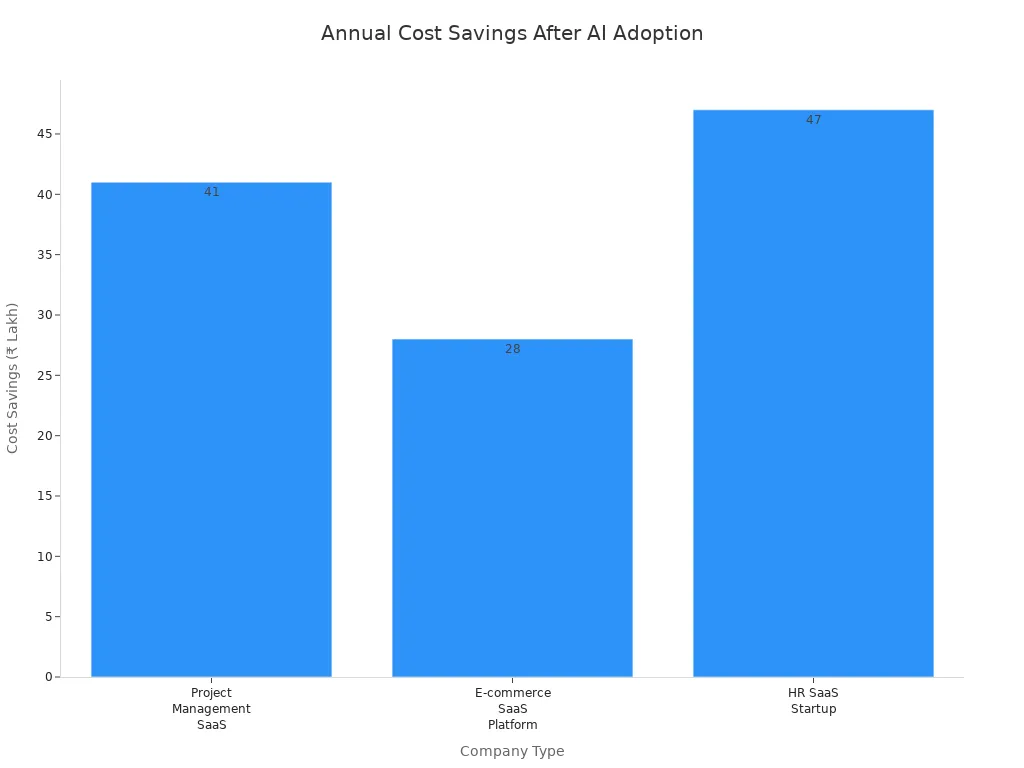
Companies using AI-driven customer service solutions often reduce service costs by about 25%. Some organizations see ROI between 300% and 800% within a few months to years. Health insurer NIB saved $22 million by using AI digital assistants, reducing human agent involvement by 60%. Top-performing companies report up to 8x returns on AI investments.
Sobot’s tools help companies keep support costs flat, even as customer volume grows. The platform automates routine work, so businesses do not need to hire more agents during busy times. Sobot’s AI-powered automation also cuts training costs and reduces agent turnover. These changes lead to higher customer satisfaction and better retention.
AI-driven efficiency translates into real business outcomes. Sobot’s platform tracks key metrics like churn, Net Promoter Score (NPS), and customer satisfaction. AI tools analyze user behavior and product usage, helping teams improve features and services. This data-driven approach supports better decision-making and continuous improvement.
Sobot’s innovation in AI and automation gives businesses a competitive edge. The platform helps companies deliver better service, save money, and grow faster.
AI in Customer Service
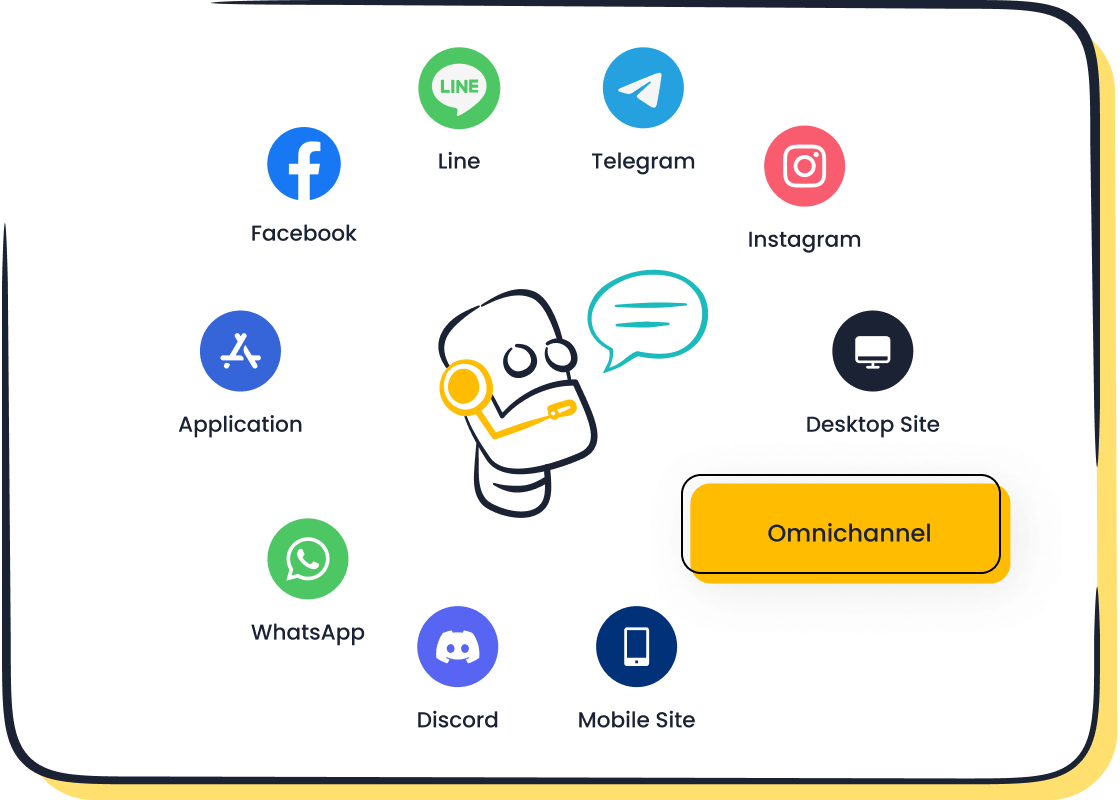
Omnichannel Solutions
AI has changed the way companies manage customer engagement. Omnichannel solutions now connect phone, email, chat, social media, and mobile apps. These platforms use AI to create a seamless customer experience. Agents see a unified view of each customer, including past interactions and preferences. This helps them deliver hyper-personalized experiences and respond faster.
AI-powered automation handles routine tasks and keeps data updated across all channels. Customers can switch from chat to email or phone without repeating information. The system preserves context, which reduces frustration and improves engagement. Companies that use omnichannel AI see a 25% increase in customer satisfaction and a 10% rise in revenue. AI also enables intelligent routing, sending each inquiry to the best agent for the job. This transformation leads to faster resolutions and more consistent service.
Key use cases for omnichannel AI include:
- Personalizing recommendations based on customer data
- Automating FAQs and order updates
- Providing real-time support across platforms
- Maintaining conversation continuity
- Enabling smooth handoffs between AI and human agents
Real-World Example: Agilent & Sobot
Agilent, a leader in life sciences, needed to improve customer engagement and efficiency. The company partnered with Sobot to deploy an AI-powered omnichannel workbench and chatbot. Sobot’s solution unified Agilent’s website and social media channels, allowing agents to manage all customer interactions in one place. The AI chatbot handled routine questions 24/7, freeing agents to focus on complex issues.
After adopting Sobot, Agilent saw a sixfold increase in service efficiency and a 25% reduction in costs. Customer satisfaction reached 95%. The AI system provided real-time insights and intelligent routing, which improved the overall customer experience. This use case shows how AI can drive transformation in customer service.
Enhanced Customer Satisfaction
AI-driven customer engagement leads to higher satisfaction scores. Studies show that AI improves service efficiency and enjoyment, which boosts loyalty. AI systems respond up to 50% faster than traditional methods and handle complex queries with ease. Customers enjoy personalized support and quick solutions.
A table comparing AI-driven and traditional service shows clear benefits:
| Aspect | AI-Driven Service | Traditional Service |
|---|---|---|
| Response Time | Up to 50% faster | Slower |
| Satisfaction | 40% higher | Lower |
| Personalization | High | Low |
| Availability | 24/7, multilingual | Limited |
Sobot’s AI tools help companies deliver consistent, high-quality customer experiences. These use cases prove that AI is a key driver of customer satisfaction and loyalty.
AI Benefits for Agents
Increased Efficiency
AI transforms how agents work by automating repetitive tasks and streamlining workflows. Agents no longer spend hours on data entry or answering the same questions. AI chatbots handle routine customer queries, while agents focus on complex issues that need human judgment. This shift leads to faster task completion and higher productivity. For example, companies using AI-driven solutions report a 35% increase in business productivity. Metrics such as task completion rate, token usage per interaction, and latency per tool call help organizations measure efficiency. Sobot’s AI-powered platform automates up to 60% of routine tasks, allowing agents to manage more interactions without feeling overwhelmed. Studies show that AI can save up to 66.8% of time on tasks compared to manual work, making it a valuable technology for any customer service team.
Improved Accuracy
AI agents improve accuracy in customer service by reducing human error and ensuring consistent responses. Real-time monitoring and automated validation systems check data integrity and alert agents when issues arise. For instance, AI chatbots can handle 80-90% of routine inquiries with up to 98% accuracy, which reduces errors by as much as 85%. Companies like AT&T and Delta Airlines have seen significant improvements in customer satisfaction and fewer complaints after adopting AI-powered systems. Sobot’s AI-driven insights help agents make better decisions by analyzing real-time patterns and providing actionable feedback. Machine learning and generative AI allow agents to deliver precise answers, even in complex scenarios. These use cases show how AI minimizes mistakes and enhances the overall customer experience.
| Company | AI Strategy Description | Results |
|---|---|---|
| AT&T | AI chatbots resolve common issues, escalate complex ones | 80% inquiries resolved, 25% cost reduction, 15% CSAT increase |
| Delta Airlines | AI predicts service issues using customer data | 12% CSAT increase, 10% fewer complaints |
| McDonald's | AI customizes menus based on time, weather, and past orders | 6% bigger orders, faster service, better accuracy |
Scalability
AI enables agents to handle more customer interactions as businesses grow. AI-powered chatbots and virtual assistants provide instant, accurate responses, freeing agents for tasks that require empathy or expertise. Sobot’s omnichannel platform supports millions of conversations daily, showing how AI scales without losing quality. Features like multilingual support, intelligent routing, and predictive analytics help agents manage higher volumes efficiently. For example, Zowie manages millions of conversations with no drop in quality, and CP All’s chatbot achieves 97% accuracy in Thai. These use cases highlight how AI agents allow organizations to scale operations, reduce wait times, and maintain a high level of customer experience. As demand increases, AI-driven technology ensures agents stay productive and customers remain satisfied.
Adopting AI for Productivity
Integration Steps
Organizations can follow a clear process to integrate Sobot AI solutions into their customer service workflows.
- Assess business needs by identifying pain points such as high inquiry volume or long wait times.
- Map the customer journey to find key touchpoints where AI can add value, like initial inquiries or post-purchase support.
- Collaborate with IT teams to ensure smooth technical integration with existing systems, including CRM platforms.
- Train staff through workshops and hands-on simulations to use new tools effectively.
- Redefine roles so AI handles repetitive tasks, while agents focus on complex issues.
- Set measurable KPIs, such as auto-resolution rate and customer satisfaction scores, to track progress.
- Refine AI systems using feedback from both customers and staff.
- Maintain transparency by informing customers when they interact with AI and offering easy escalation to human agents.
- Ensure ethical use by protecting customer data and following privacy standards.
Tip: Sobot’s point-and-click interface allows teams to deploy workflow automations without coding, making integration faster and easier.
Data Quality & Compliance
High-quality data is essential for effective AI. Teams should promote accurate data entry and reporting. Data governance frameworks help ensure accountability and clear procedures.
- Maintain transparency about how AI uses data, including processing and decision-making.
- Inform customers when they interact with AI tools.
- Disclose what data trains the AI and how user data stays secure.
- Provide choices for customers regarding AI features.
- Stay current with regulations like GDPR and the NIST AI Risk Management Framework (NIST).
- Limit access to sensitive data and secure data transmission.
- Conduct regular audits and risk assessments.
- Embed privacy by design and default into all AI systems.
A table can help teams track compliance:
| Practice | Purpose |
|---|---|
| Regular audits | Identify weaknesses |
| Data provenance | Establish source credibility |
| Human oversight | Reduce automation risks |
Training & Change Management
Successful AI adoption depends on staff training and change management. Teams should use tailored workshops, mentorship, and hands-on practice to build confidence with new tools. Ongoing training ensures agents understand how to use real-time data and AI technology.
- Pilot AI solutions before full deployment.
- Foster collaboration among administration, IT, and customer service teams.
- Encourage feedback to improve both tools and workflows.
- Redefine roles to balance automation with human empathy.
Sobot supports organizations with training resources and responsive support, helping teams adapt to new technology and maximize productivity.
AI is changing the game for agent productivity. Sobot’s solutions help companies automate tasks, improve efficiency, and cut costs. For example, Agilent saw a sixfold increase in customer service efficiency using Sobot Chatbot. Many businesses report higher customer satisfaction and faster response times.
Companies should review their current agent productivity tools. Sobot Chatbot offers a simple way to start with AI. Begin with a pilot or contact Sobot for a tailored solution. Learn more at Sobot’s official website.
FAQ
What is agent productivity, and how does AI improve it?
Agent productivity measures how efficiently customer service agents handle tasks. AI boosts agent productivity by automating routine work, providing instant answers, and reducing errors. For example, Sobot’s chatbot can resolve up to 86% of customer questions without human help.
How does Sobot’s chatbot support 24/7 customer service?
Sobot’s AI-powered chatbot works around the clock. It answers questions at any time, even outside business hours. This ensures customers always get help. Companies using Sobot report higher satisfaction and faster response times.
Can Sobot’s AI handle multiple languages?
Yes, Sobot’s chatbot supports multilingual service. It uses a single knowledge base for many languages. Global brands like Renogy saw a 27% boost in response accuracy after using Sobot’s multilingual features.
What cost savings can businesses expect from AI in customer service?
Businesses using AI, such as Sobot’s solutions, often see support costs drop by 25% or more. Some companies report even higher savings and faster returns on investment. AI helps reduce the need for extra agents during busy times.
Is it hard to set up Sobot’s AI solutions for agent productivity?
No, Sobot’s chatbot uses a point-and-click interface. Teams can design and launch workflow automations without coding. This makes it easy for businesses of any size to start improving agent productivity quickly.
Tip: Learn more about Sobot’s AI-powered chatbot and its impact on agent productivity at Sobot’s official website.
See Also
How AI Agents Are Transforming Customer Support Services
Ways AI Software Enhances Efficiency In Customer Service
An In-Depth Look At AI Solutions For Call Centers
